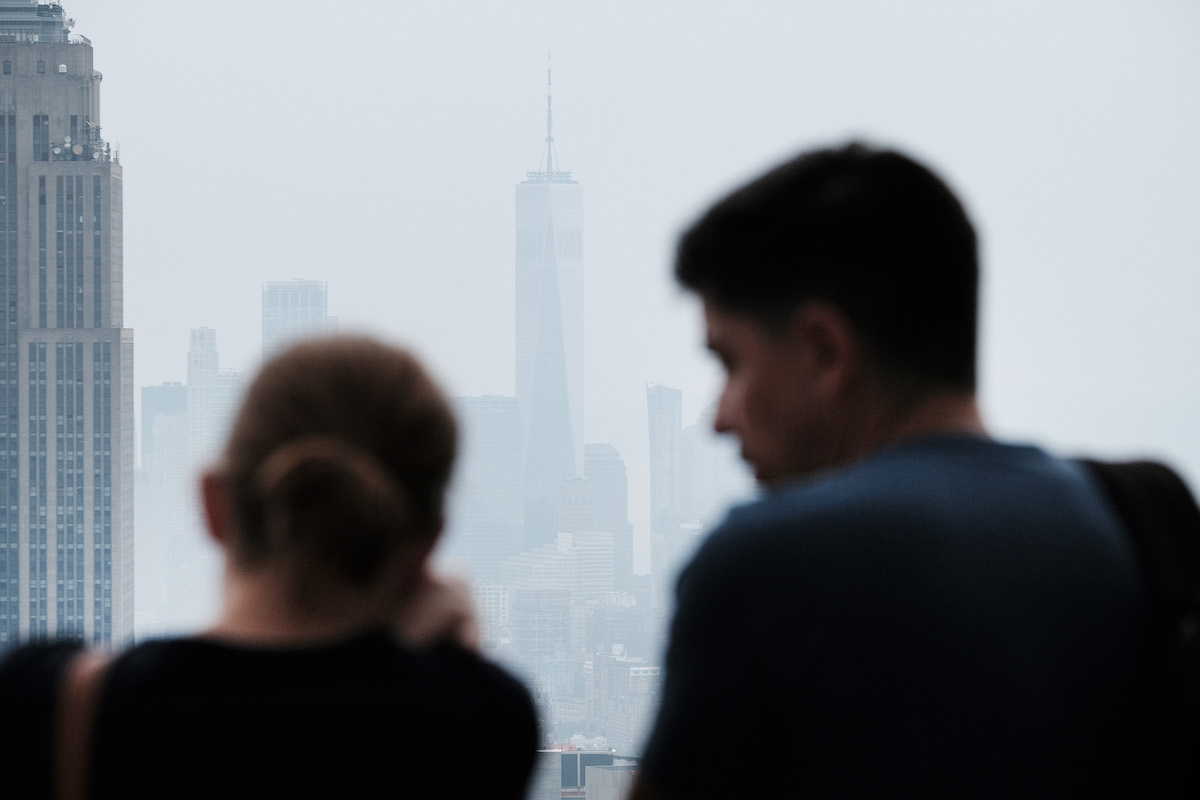With the stress of a never-ending pandemic, rising political tensions, and Russia’s invasion of Ukraine, the 2020s have been off to an unpromising start for mental health. And according to the most comprehensive report to date on how the changing planet is affecting society, the climate crisis is likely to make it even worse.
The report released this week from the United Nations’ Intergovernmental Panel on Climate Change, at more than 3,600 pages, provides a sweeping picture of how the world is becoming hotter, sicker, and poorer, putting billions of people in danger. It warns that time is running out not only to address rising emissions, but to adapt to climate change.
“These impacts are happening much faster, much more widespread, and more severe than we had previously thought,” said Sherilee Harper, the lead author of the IPCC report’s chapter on North America and a health professor at the University of Alberta in Canada.
The authors spell out how the effects of climate change are linked to stress, trauma, grief, anxiety, and suicide. U.N. Secretary-General António Guterres described the report as “an atlas of human suffering.” It marks the first time that the panel of top climate scientists has emphasized mental health in their influential reports.
Climate change has already started taking a serious psychological toll, the report shows, whether people are evacuating from a wildfire, abandoning their homes after a flood, or trying to grow crops in unpredictable conditions.
“You look at property damage, or you look at the economy, or you look at any of these climate change impacts that the report covers, and mental health is stressed for all of them,” Harper said. “It touches everything.”
The IPCC report comes amid growing awareness of the mental anguish caused by the climate crisis, along with mental health more broadly. Last fall, the largest study of its kind found that climate change is causing widespread psychological distress among teens and young adults in countries around the world, affecting their daily lives and ability to function. Around the same time, Google reported that searches for “climate anxiety” had soared 565 percent from the year before. “There’s a broader cultural focus on mental health that I think has also been brought into sharp relief as a result of the pandemic,” said Elizabeth Dunn, a psychology professor at the University of British Columbia in Canada.
The IPCC report shows that fires, flooding, and hurricanes — made more extreme by climate change — are associated with various mental health challenges. About 20 to 30 percent of people who live through a hurricane, the report says, develop depression or post-traumatic stress disorder in the months afterward, with similar effects after flooding. Wildfires have been linked to increases in anxiety, substance abuse, and sleeping problems.
Rising temperatures come with their own set of problems independent of natural disasters. Hotter weather is linked to higher rates of psychiatric hospital admissions, ER visits, and suicide, along with depression, anxiety, and aggression. One study of nearly 2 million Americans found that hot days lead to an increase in mental health problems, particularly when it’s 90 degrees F or above.
You don’t have to be directly affected to feel anxious, either. Studies have found that simply learning about climate change leaves people feeling stressed out and depressed, though the IPCC report says there’s not yet robust evidence showing how widespread and severe these effects are.

Longer-term changes to the weather and landscape can cause disruptions, too, forcing people to relocate, causing job-related stress, and making food harder to come by. Droughts, for instance, have been linked to suicide for farmers. Air pollution, like smog or wildfire smoke, take a toll on the lungs as well as happiness. The report notes that people can feel distress and grief, sometimes called “solastalgia,” when landscapes important to them are degraded.
Harper, who studies the health of Indigenous people in the Arctic, says that the changing climate is causing a variety of problems for the Inuit. They’re having more trouble hunting and fishing, and often end up traveling further than they used to, often on unstable ice, sometimes changing a route last-minute because of a storm. “For the people who are at home, waiting for their loved ones to come home from those hunting trips can also be really stressful, because in many areas in the Arctic, there’s no cell phone service,” Harper said. “You just hope that they’re there.”
The IPCC report found that climate-related mental distress varies by region, but first responders, young people, women, and Indigenous people are often more likely to face these effects, as are people who have outdoor jobs, such as farm workers, fishers, and wildfire fighters.
Harper says that feeling grief and loss in the face of climate change is a “very reasonable response,” but it becomes a problem when these feelings start to affect relationships or the ability to think and function.
While the psychological effects of the changing climate are numerous and sobering, Dunn looks at climate and the brain from a different perspective. “The conversation around climate change can really emphasize shame, guilt, fear, anxiety, grief, and happiness did not have a seat at the table,” said Dunn, who researches happiness. A lot of the ways that people in rich countries currently live are neither optimal for the climate nor mental health. Cutting down on flying means less TSA-induced stress; biking or walking to work makes people happier and healthier; avoiding the fast-fashion treadmill could mean less guilt, remorse, and financial stress. A lower-carbon life doesn’t need to be a sacrifice, Dunn says.
The common wisdom is that the solution to climate anxiety is to take some kind of personal action, like eating less meat or trying to get an environmental champion elected, but Harper emphasized that systematic solutions are needed, too. The IPCC report found that health systems around the world are poorly positioned to respond to climate change, with “mental health support being particularly inadequate.” Harper suggested that doctors and nurses need training in how to respond to climate-induced distress, and that resources like mental health support and group therapy should be more widely available.
“It’s not just a matter of somebody taking action or going to protest,” she said. “It’s a lot deeper than that, and a lot more complex, and requires a lot more intervention.”



